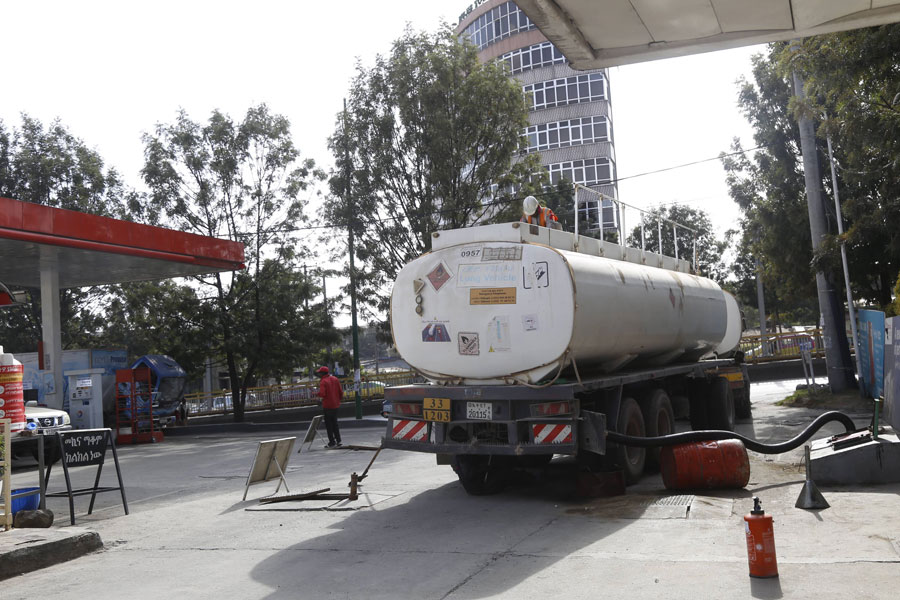
Dec 26 , 2020
By Dagmawit Moges
The transport and logistics service has for too long been traditional, overly centralised and rigidly controlled. Shifting the whole concept of the services innovatively by using advanced technologies, whereby services are delivered transparently and according to the immediate needs and demands of citizens, should be the focus, writes Dagmawit Moges, minister of Transport.
Ethiopia has been aspiring to become a middle-income country for the past decade; however, it is a long way from achieving this vision. Various reasons can be attributed to poor performance, yet one of the major ones is a failure to establish strong institutions.
The core of strong public institutions rests on the rule of the game that structures the organisation’s position in delivering adequate services. And the rules are constructed through the socioeconomic and political environment of the country, formal and informal organisational arrangement, as well as the system installed in the organisation to execute its mandate.
In our case, leaving aside the political meddling, almost all public institutions rely on the traditional, manual-based system, which is highly bureaucratic, slow and rigid to respond to the growing demand of citizens. Usage of information technology to advance the service quality is also continuously compromised to maintain the status quo of growth expressed in terms of growth domestic product (GDP) alone. GDP does not necessarily show multi-dimensional growth in terms of indicators such as establishing strong institutions, equity and equality.
If we want to leapfrog in successfully realising the Homegrown Economic Reform Agenda and the recently green-lighted 10-Year Perspective Plan, we need to work on establishing effective public institutions. This should be in a way that they could give ample room for the private sector and civil societies to play their part.
Moreover, innovation in the concept, system and process in the formation of institutions and delivery of services has to be central, as I discussed in a previous piece for this publication, “The Urgency of Innovation in Transport Service Delivery,” [Vol. 21, No 1059, August 16, 2020]. Here, there is a need to articulate transport service concept innovation in understanding and delivery of services.
In this era, governments should be citizen and service-centred. That is, the concept of government and government services should be innovatively shifted to overcome the inherent nature of inefficiency in their service design and delivery. The traditional, mostly centralised and rigidly controlled type of services should be diverted to digital government, whereby services are delivered transparently, efficiently and impartially.
More precisely, the transport services should be demand-driven, where the services are designed to accommodate the need and demands of the residents while encompassing flexibility to interact with other advanced technological systems.
For instance, Demand Responsive Transportation (DRT) is an information technology-based system that specifically requires innovation in route and time concepts, the booking concepts, the network concepts and vehicle allocation concepts. In this manner, the transport system will provide services based on the demands of residents using the applications.
The idea of introducing concept innovation in the logistics sector is also all about improving citizens' experience of accessing goods in a seamless way. One way of achieving this is using technologies such as blockchain. It can drastically transform the logistics system by facilitating the functioning of the back office and creating a public ledger for every transaction, hence making the system more transparent and efficient.
Such concept innovations are in the interest of making verified information available to citizens and making the transport and logistics services flexible based on the demands of users. This would alone shift the gears drastically, allowing more room for system and process innovation in the transport and logistics sector. This way, we can make a tangible difference in the lives of every citizen as a nation of brave souls.
PUBLISHED ON
Dec 26,2020 [ VOL
21 , NO
1078]


Radar | Feb 19,2022

Radar | May 24,2025

Fortune News | Jun 29,2025

Radar | May 13,2023

Radar | Jul 11,2021

Fortune News | Jun 22,2024

Agenda | Oct 03,2020

Fortune News | Sep 19,2020

Editorial | Sep 26,2021

Fortune News | Jan 22,2022

My Opinion | 131658 Views | Aug 14,2021

My Opinion | 128022 Views | Aug 21,2021

My Opinion | 125985 Views | Sep 10,2021

My Opinion | 123609 Views | Aug 07,2021

Dec 22 , 2024 . By TIZITA SHEWAFERAW
Charged with transforming colossal state-owned enterprises into modern and competitiv...

Aug 18 , 2024 . By AKSAH ITALO
Although predictable Yonas Zerihun's job in the ride-hailing service is not immune to...

Jul 28 , 2024 . By TIZITA SHEWAFERAW
Unhabitual, perhaps too many, Samuel Gebreyohannes, 38, used to occasionally enjoy a couple of beers at breakfast. However, he recently swit...

Jul 13 , 2024 . By AKSAH ITALO
Investors who rely on tractors, trucks, and field vehicles for commuting, transporting commodities, and f...

Jun 28 , 2025
Meseret Damtie, the assertive auditor general, has never been shy about naming names...

Jun 21 , 2025
A well-worn adage says, “Budget is not destiny, but it is direction.” Examining t...

Jun 14 , 2025
Yet again, the Horn of Africa is bracing for trouble. A region already frayed by wars...

Jun 7 , 2025
Few promises shine brighter in Addis Abeba than the pledge of a roof for every family...

Jun 29 , 2025
Addis Abeba's first rains have coincided with a sweeping rise in private school tuition, prompting the city's education...

Jun 29 , 2025 . By BEZAWIT HULUAGER
Central Bank Governor Mamo Mihretu claimed a bold reconfiguration of monetary policy...

Jun 29 , 2025 . By BEZAWIT HULUAGER
The federal government is betting on a sweeping overhaul of the driver licensing regi...

Jun 29 , 2025 . By NAHOM AYELE
Gadaa Bank has listed 1.2 million shares on the Ethiopian Securities Exchange (ESX),...